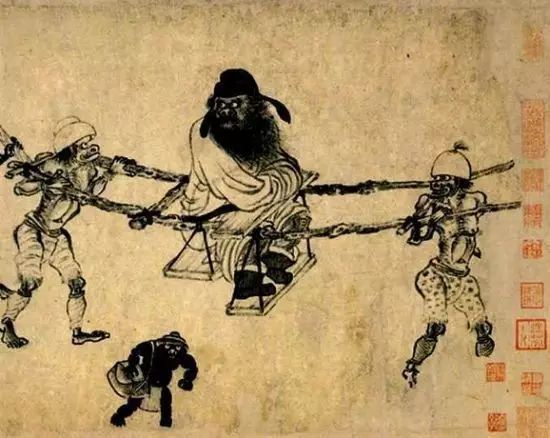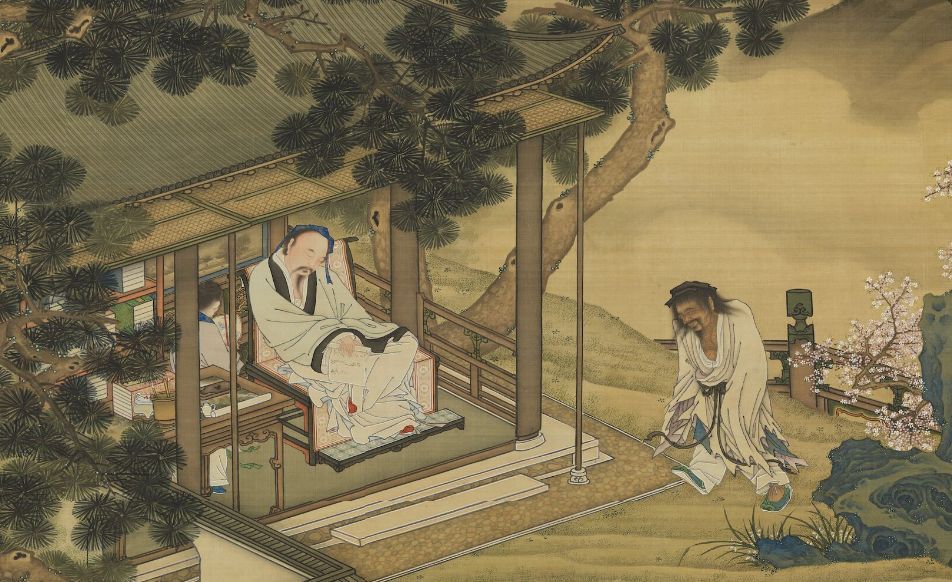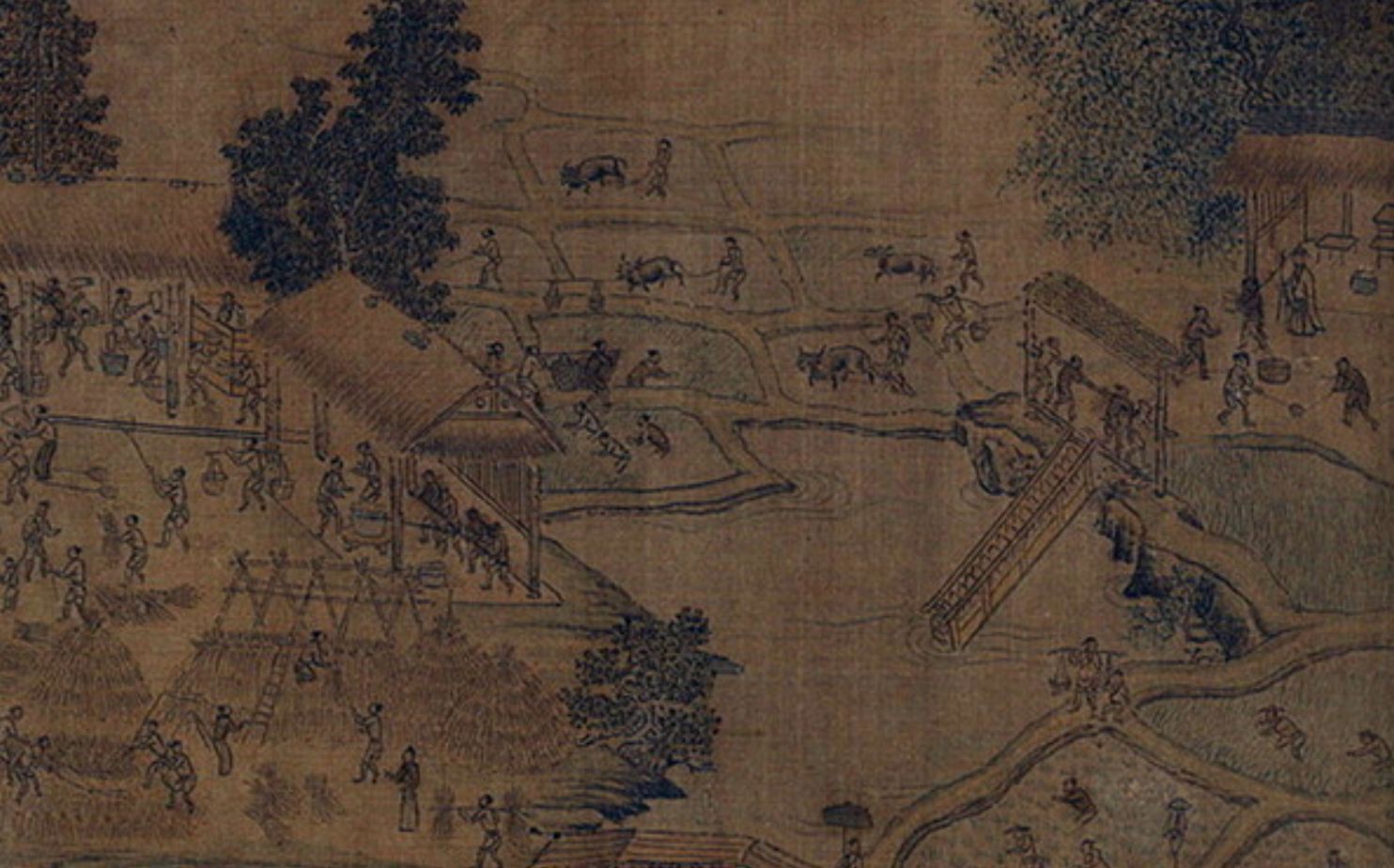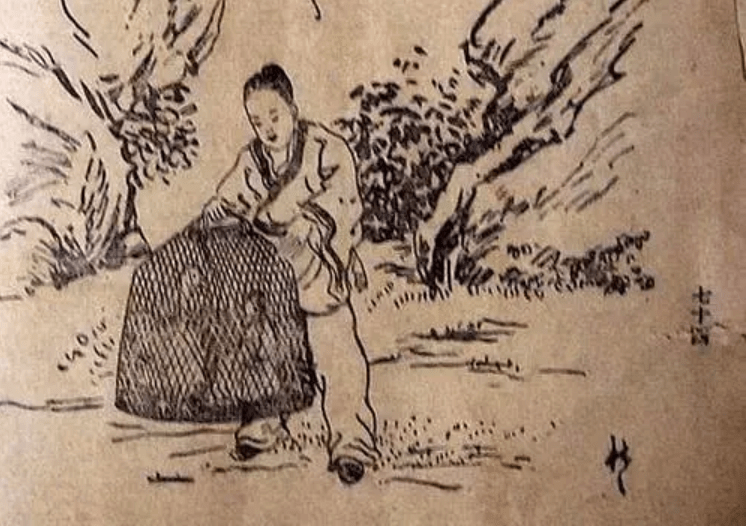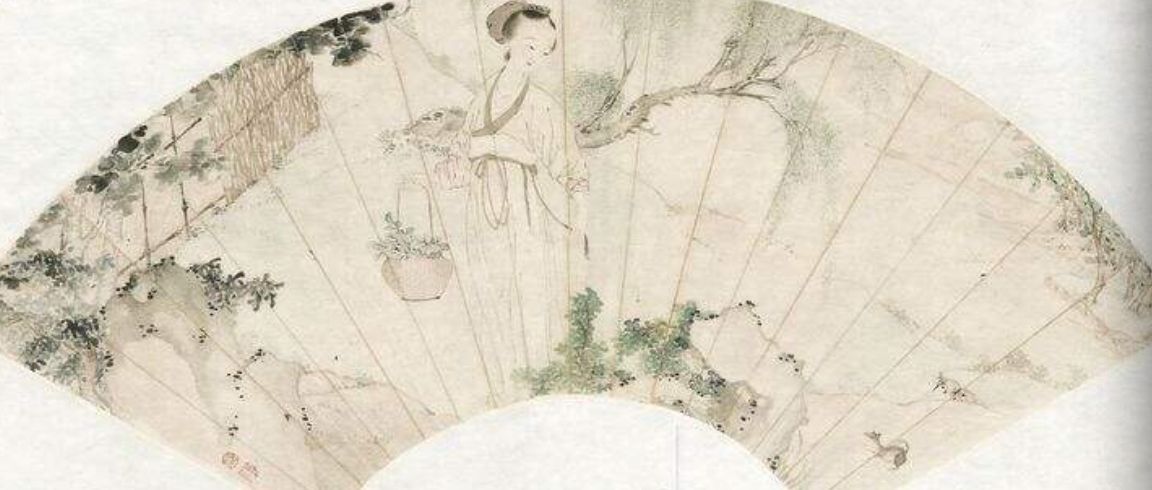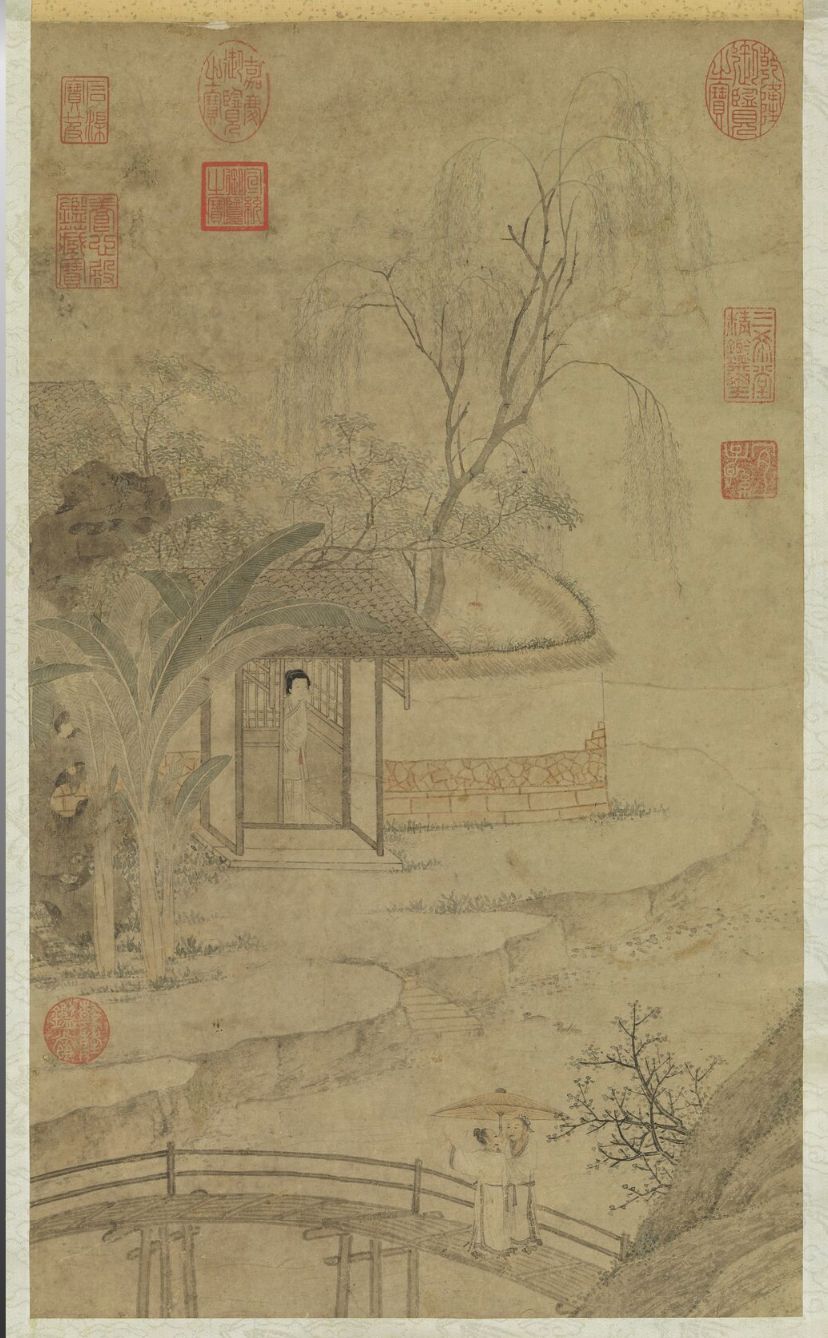The King’s Daughter and the Ghost Judge
In the second year of the Dali period, Magistrate Li Zuoshi of Shanyin fell ill with a serious illness. After several days, his condition improved slightly, and he traveled from Kuaiji to Longqiu. His cousin, Magistrate Li Shu, was serving as the county magistrate in Longqiu, and he invited Li Zuoshi to stay at the county office for a few days.
One night, Li Zuoshi was talking with his guest, Li Ju, by candlelight when suddenly twenty or so men dressed in red robes and carrying weapons appeared in the corridor.

